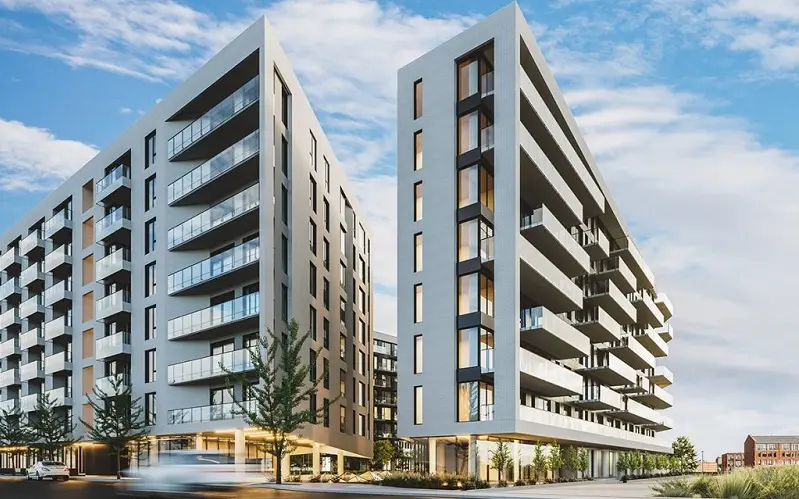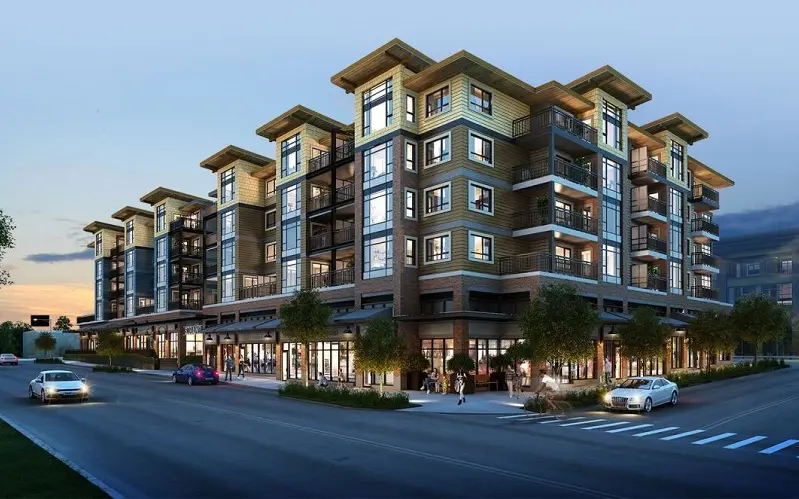Welcome to the ultimate living space showdown! In the dynamic realm of urban living, two titans stand tall: condo vs. apartment.
Embark on this journey with us! We’ll explore the nuances, benefits, and unique charms that distinguish these housing types.
So, are you looking for the epitome of luxury or practicality? Join us as we delve into the captivating realm of condominiums and apartments.
What Is the Difference Between a Condo and an Apartment?
The distinction between condos and apartments lies primarily in ownership and management.
Condominiums are separate real estate units within a larger complex. They give residents ownership of their space. And they share in the maintenance of the common areas.
Apartments are typically leased from a property management company or landlord. It often means less responsibility for maintenance but fewer customization options.
While condos offer more ownership benefits, apartments offer greater flexibility. It is a choice between long-term investment and short-term convenience. Both offer different lifestyles in the dynamic world of urban living.
Who Is A Condo Best Suited For?

Condos are best suited for individuals or families. They are those who want a combination of ownership and shared amenities.
They are ideal for those who want to invest in real estate. However, you are not responsible for owning a separate residence.
A condo is best for busy professionals, retirees, and anyone who wants to feel like a community member. You will have access to amenities such as:
- Gyms
- Swimming pools
- Common areas
It is a great option for those who appreciate a well-maintained environment. The condo is good for those willing to abide by the condominium rules.
However, those valuing complete autonomy and extensive customization might find condo living restrictive. Ultimately, condos are suitable for those seeking a balance of personal space and communal amenities.
Condo Advantages
Condominiums offer several advantages:
- They provide a sense of ownership and potential growth in value. It makes them favorable investments.
- Many amenities are often included in the price. It enhances the quality of life.
- Everyone shares maintenance responsibilities. It reduces individual burdens.
- Condominiums are usually found in upscale urban neighborhoods. It provides convenient access to city life.
- In addition, they often have a strong sense of community. It is all thanks to common areas and shared interests among the residents.
Overall, choosing condos or apartments should be guided by your desires. And if you want a quiet and relaxed life, condos are suitable for you.
They combine the advantages of ownership, shared amenities, and a vibrant urban lifestyle.
Condo Disadvantages
Although condominiums have many advantages, they also have certain disadvantages.
- Homeowners Association (HOA) fees can be significant and mandatory. It affects the monthly budget.
- Due to HOA rules and regulations, condominium owners may have limited control over property decisions.
- Proximity to neighbors can lead to noise and privacy issues.
- Reselling a condominium can be difficult if the market is saturated.
Are you facing the choice of condos vs. apartments? Then be sure to weigh the advantages of communal living against the disadvantages.
Who Is the Apartment Best Suited For?

Apartments are an excellent choice for those seeking flexibility and convenience. They are well-suited for individuals and families who prefer a hassle-free lifestyle.
The obligations of ownership do not tie you down. You can often find apartments in prime urban areas. It makes them ideal for those who love city life.
Apartments are suitable for those who value proximity to work and entertainment. They suit young professionals, students, or anyone who frequently relocates.
The reduced maintenance responsibilities and predictable monthly rent are appealing factors. However, people who wish to have more control over individual privacy and property decisions may find apartment living less convenient.
Apartment Advantages
Apartments have several advantages that suit different lifestyles:
- They are hassle-free with minimal maintenance. It allows residents to focus on other things.
- Renting an apartment often requires a lower initial outlay than buying an apartment or house.
- Prime urban locations mean easy access to work, entertainment, and amenities.
- Are you not ready for a long-term commitment? Or are you unsure of your plans? The apartments can be a stepping stone to success.
- Additionally, property management handles repairs and upkeep, providing convenience.
For those valuing flexibility and urban convenience, apartments are an appealing housing choice.
Apartment Disadvantages
Despite the advantages, the difference between a condo and an apartment can highlight the disadvantages of apartments:
- Limited customization options can hinder the personalization of living spaces.
- Unlike homeownership, monthly rent payments don’t contribute to ownership or equity buildup.
- Proximity to neighbors can lead to noise and privacy issues.
- Rent hikes are possible at lease renewals, affecting long-term affordability.
- Some apartments might lack the desired amenities found in condos.
- Some apartments may lack the sense of community found in condos.
The balance between the convenience of living in an apartment and these limitations is crucial when making a housing decision.
Things You Should Consider

When choosing condos or apartments, there are several important factors to consider. Each option has its advantages and disadvantages.
Understanding your priorities will help you make the best decision. Here are the key aspects to evaluate:
Cost
Both condos and apartments are suitable for those confident in their financial situation. Apartments usually involve a monthly rent.
It provides more budget flexibility and no long-term commitments. However, these payments do not contribute to the accumulation of capital or property.
Condos, on the other hand, involve a mortgage payment if they are financed. And there are also homeowners association (HOA) fees.
These fees cover the cost of maintaining and servicing the home. But they add to the overall cost. Be sure to evaluate your financial situation.
Compare the short-term affordability of renting a condo with the long-term investment potential. You must decide if owning a condo or renting an apartment is better.
Maintenance
Maintenance responsibilities vary between condos and apartments. In apartments, repairs and maintenance are often placed on the landlord.
It can be convenient, especially for those who prefer to do without maintenance. In contrast, condo owners share maintenance responsibilities through an HOA.
It means you have more control over property maintenance. But it also requires you to abide by the HOA rules. You must potentially participate in special assessments for unexpected expenses.
Amenities
One of the defining features of condos is their shared amenities. These include swimming pools, fitness centers, shared living rooms, and other facilities.
All of which you often get as a resident of condos. These amenities contribute to a luxurious lifestyle. You will be able to provide convenience and potential socializing with your neighbors.
In comparing condos vs. apartments, apartments can be in luxury complexes. And they, too, can offer amenities of various kinds.
However, the amenities may not be as extensive. Consider whether having access to these shared facilities is a priority for you.
Do these amenities justify the costs associated with them? Make the right decision.
Location
Another difference between condos and apartments is their location. Both condos and apartments can be found in different urban areas.
However, their availability may differ. Condos can often be found in upscale neighborhoods. It provides proximity to city centers, shopping districts, and entertainment venues.
Condos also offer the convenience of living in the city. But their locations can be more varied. When choosing an apartment, consider your
- Travel needs
- Preferred neighborhood
- Proximity to work, schools, and recreational activities
HOA Rules
Condo buyers need to know the rules and regulations of the HOA. Their rules may cover aspects such as:
- Noise levels
- Pet regulations
- Exterior alterations
- And even rental restrictions
These rules maintain the overall aesthetics and harmony of the complex. But they can also limit your freedom to enjoy your living space.
Do you value personalization and freedom? Then, be sure to read the HOA rules before you purchase an apartment.
Condo vs. Apartment: Which One to Choose

Choosing between condos and apartments depends on your:
- Lifestyle
- Preferences
- And financial situation
Condos offer flexibility, low maintenance, and no long-term commitment. They suit those who prioritize convenience and short-term affordability.
Condos provide the benefits of ownership, convenience, and a sense of community. But they come with a higher cost and potential limitations.
As you embark on the path to homeownership, remember that choosing condos vs. apartments is about aligning your lifestyle with your priorities.

